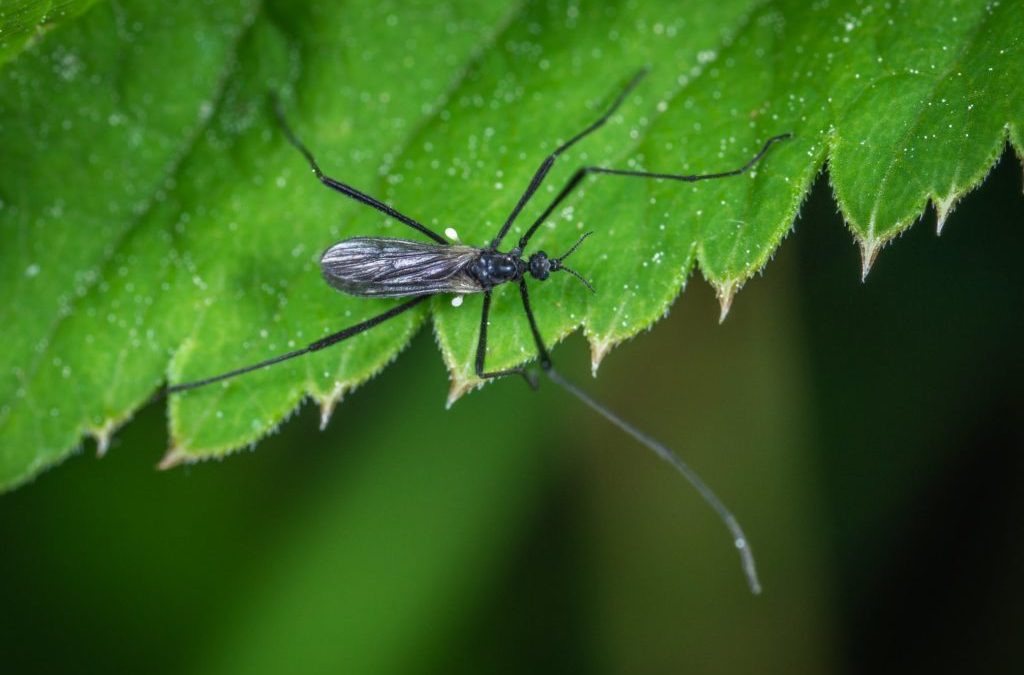The things that make Charlotte a beautiful place to live — short, mild winters and long months of hot, humid weather — make it a haven for insects. If you haven’t encountered any of these pesky interlopers yet, chances are you will at some point. Here’s a list of the worst backyard pests in Charlotte, N.C., and how to deal with them.
Aphids
These little suckers attach themselves to the undersides of the leaves of herbaceous and woody plants and suck the life out of them. The easiest way to detect aphids is to examine the bottoms of leaves from time to time. If you see a plant looking unusually wilted or developing strangely shaped or colored new leaves, the aphids have invaded. It’s possible to treat aphids without chemicals, by crushing them, spraying them with water from a hose, or treating them with neem oil.
Bagworms
You’ll first see these pests gathering in late spring, forming small bags that resemble upside-down ice cream cones. Conifers are the most susceptible trees. The sooner you notice them, the better. You can treat with a biological, nontoxic pesticide, Bacillus thuringiensis, or BT, but only when the worms are young and feeding. Spinosad is your next line of defense, effective on the adult worms and also low in toxicity. Whatever you do, don’t ignore the problem, because it will only get worse the following year.
Fire Ants
Nothing ruins a good time in the yard faster than fire ants. These inconsiderate invaders do great damage to the lawn and deliver nasty bites that you won’t soon forget. There are many control methods, from treating mounds with boiling water to drenching them with insecticide. One of the most effective techniques is the two-step method, which can reduce the population by 80 to 90 percent. This involves spreading a bait over your yard in the early part of fall. The ants will take this back to their nest where it will kill the queen. The second step involves treating individual mounds with a granule or dust insecticide.
Mosquitoes
While mosquitoes don’t do any damage to the lawn, they can ruin a backyard party. They’re also the deadliest creature on the planet! The best way to take care of this pest is to prevent them from breeding in the first place. Make sure there is absolutely no standing water anywhere in the yard. If you have a birdbath, replace the water every few days, and if you have a pond or water feature, treat it with non-toxic mosquito dunks every couple of weeks.
Planting fragrant plants like mint, lavender, geraniums. and rosemary around decks and patios can help to repel these bloodsuckers. If all else fails, installing oscillating deck fans can help to at least keep these slow-flying pests at bay.
Grubs & Beetles
When you begin to see inexplicable brown spots on an otherwise healthy lawn, you can be almost certain that a grub is to blame. If you suspect you have a grub issue, try to lift up a piece of affected turf. If it rolls up and seems to lack roots, then you know you have grubs. To avoid using chemicals on your lawn, use milky spore, nematodes, or neem oil to kill the grubs in the soil. Remember, the healthier your lawn is, the more difficult it is for grubs to make a dent in it. Mow consistently and make sure you irrigate the right amount.
No matter what pests you’re dealing with, prevention and early detection are the best defenses you can mount against them. Treating an all-out infestation will always be more difficult and time-consuming. So keep your eyes open and do your best to defeat the worst pests before they become problematic.
Want to learn more about lawn care and gardening in Charlotte? Visit our Charlotte Lawn Care page.
Jay Keaton is a lawn care specialist who focuses on organic pest control. His yard is filled with chrysanthemums, basil, borage, marigolds and other plants that repel bugs.

